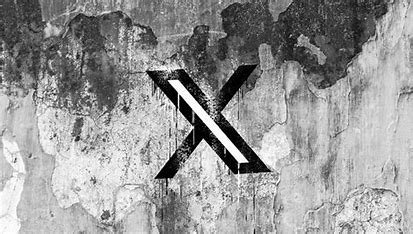These are the Passwords You Definitely Shouldn’t Be Using

Every year, cybersecurity experts remind us that secure passwords are essential for protecting personal information. Yet, despite the constant risks of cyber attacks, people still choose passwords that are laughably easy to guess. This year, the password manager NordPass has once again released its list of the most commonly used passwords worldwide—and the results show that many of us haven’t learned our lesson. The champion? Once again, it’s “123456,” which remains the go-to password for countless users worldwide.
1. The Usual Suspects: Why Do We Keep Using Simple Passwords?
It’s baffling that “123456” keeps topping the list year after year. Even though most of us know by now that using such simple passwords is a bad idea, millions continue to rely on these easily guessable combinations. In fact, “123456” has been NordPass’s top entry five times in the past six years. Only “password” managed to beat it once, in 2022.
This trend points to a big issue in cybersecurity: many people don’t realize how easily hackers can guess a simple password, even one that seems “unique.” Hackers use techniques like “brute force” attacks—automated attempts to guess passwords by trying the most common combinations. With a basic password, a hacker can often break in within seconds.

2. Passwords That Reveal Our Interests (and Lapses in Security)
NordPass’s list doesn’t just showcase the numbers and simple phrases we rely on; it also reflects cultural trends and personal interests. Some people are sentimental, opting for “iloveyou” as their password, while others aren’t afraid to get a bit vulgar, using phrases like “fuckyou.” Popular characters and brands also make appearances, with “pokemon,” “naruto,” “samsung,” and “minecraft” as regular contenders. Some users even go as far as using their names—such as “michelle” or “ashley”—which makes it even easier for anyone who knows them to guess their login credentials.
While some individuals try to be clever with combinations like “P@ssw0rd,” even these are surprisingly easy to crack. Slightly altering letters to look “unique” doesn’t create the security users often assume, as hackers are aware of these common substitutions.

3. Local Flavor: How Different Countries Show Their Preferences
Interestingly, NordPass’s data also reveals unique password trends in different countries. In the UK, for example, “liverpool” is a favorite, a nod to either the city or the popular football club. Australians sometimes use “lizottes,” a reference to a local restaurant and music venue, while in Finland and Hungary, “salasana” and “jelszo” are common—both words meaning “password” in their respective languages. While these localized choices show cultural identity, they’re still weak passwords, as hackers can easily guess them with regional data in mind.
Even if you feel tempted to use something easy to remember, local words, city names, and favorite brands still make you a potential target. When we rely on such predictable choices, we risk giving hackers exactly what they need.

4. The Data Behind the Lists: How NordPass Compiles Its Findings
NordPass creates its list of common passwords from a large 2.5TB database of publicly available information, including data from the dark web. This list draws on real-world data about leaked or hacked accounts, so it gives a pretty accurate picture of the passwords people actually use. And if you’re wondering how fast a hacker could crack any of these popular passwords, the answer is: nearly instantaneously. Many of the top passwords on the list, like “123456” or “qwerty123,” can be guessed in under a second, posing serious risks for anyone still using them.
5. Thinking Beyond Simple Passwords: How to Protect Yourself
If you see your password on this list, it’s time for a change. Strong, secure passwords are your first defense against hackers. Opt for longer passphrases—strings of words that are meaningful to you but hard for others to guess, like a memorable sentence or a phrase only you would know. Alternatively, you could try using passkeys, which are more secure than traditional passwords and don’t rely on guessable text.
While some people still opt for convenience over security, password managers like NordPass can store complex, unique passwords for each account, ensuring that you don’t have to memorize every single one. And if you’re concerned about hackers, a password manager offers an easy, reliable way to secure all your accounts with unique, hard-to-crack passwords.
The 2024 Top 10 Most Common Passwords
According to NordPass, here are the passwords you should avoid at all costs:
- 123456
- 123456789
- 12345678
- password
- qwerty123
- qwerty1
- 111111
- 12345
- secret
- 123123
To learn more about password security or to explore options for keeping your data safe, check out NordPass’s official guide to strong passwords. Using a strong, unique password—or a password manager—can save you from a future security nightmare. If you see your password on this list, don’t delay in updating it. In the digital age, even one weak password can open the door to all your other accounts, so make your online security a priority.
Read more : Google Signs Nuclear Power Deal with Kairos Power















